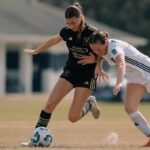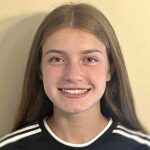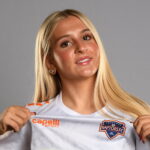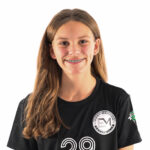Q&A: LA Galaxy’s Brian Kleiban on the lessons of GA Cup
FRISCO, Texas – With world-class facilities, an in-house education component and plenty of blue-chip prospects from across Southern California, the LA Galaxy have built one of the most ambitious youth academy programs in North America.
Coach Brian Kleiban is one of the project’s most prominent figures, an accomplished developer of talent who led the Galaxy squad at the 2017 Generation adidas Cup – the Under-17 tournament that ranks as the top youth event in Major League Soccer – at FC Dallas’ Toyota Soccer Center last week.
LA advanced to the knockout stages of the GA Cup’s top bracket, the Championship Division, but fell to Argentina’s Estudiantes de la Plata in a 3-2 shootout in the semifinals. SoccerWire.com caught up with Kleiban after the tournament to learn more about the lessons learned from the high-level competition.
SoccerWire.com: What are your reflections on the week? The quality of the GA Cup matches I watched was generally very high.
Brian Kleiban: It’s something that’s needed, by us at the LA Galaxy and all the other MLS academies. To compete at the international level, you need these type of high-level games that we don’t get – speaking for the Galaxy, at least – that we don’t get very often.
Playing [Sporting] Kansas City, which is a good opponent, and talking to their director Jon Parry right after our game and throughout the week, he had the same sentiment. They dominate their region, they’re the No. 2 team in the country right now. ‘Brian, we play Dallas, and then every other game is easy, and then our players feel good about themselves, we feel good about this player pool, and then you guys come in and drop five goals on us in a half. Where does that leave us?’ So he wants to get together and set up friendlies, get ourselves together with maybe San Jose [Earthquakes], Xolos [Club Tijuana], four, five or six international teams here in LA a couple times a year.
+READ: Youth soccer insurgency? Kleibans launch Las Vegas coaching summit
Regarding the Galaxy, it’s absolutely mandatory that our top players get these types of games, because they see real opponents, they see real game scenarios that are going to test them, to see who’s going to be a pro, who’s not going to be a pro. If we go against a 10-man-deep block every weekend like we normally do in our league games, it doesn’t help our players. So that’s the biggest takeaway. it’s something we’ve known for a while and it just got validated again over the last 10 days.
SW: I heard from multiple coaches that the teams from overseas [GA Cup featured 13 foreign academies in addition to 19 MLS teams] bring a level of savvy and sophistication that is rare in the United States and Canada.
BK: Yeah, we’ve lived it for many many years. The international level is the international level. The Mexican teams, they travel with their first team counterparts and play in these type of intense games week in and week out. The Flamengo [Brazil] team plays their local rivals week in and week out. You can just see that they’re more match-ready for these type of games and being in adverse situations and having to defend in 1v1 situations constantly, winning their battles – where we’re not. Any little detail, any little mistake gets exposed and at this level you get punished.
That Flamengo game [a 3-1 LA loss in group play] was a game of details; we’re down 1-0 off a great goal early on by them. We have an easy chance, a tap-in goal to tie it at 1-1 right before the half. We don’t, we make a mistake, turn the ball over and it’s 2-0 at halftime. These type of things don’t happen here domestically. And it’s good for our players to have those adverse moments, and get back in the game – good mentality, come back to 2-1, start to take the game in the second half, and then we ran into the VAR (video assistant referee, a pilot program at GA Cup) situation where a penalty was called after the fact.
Me, myself, the club, the players, we all had the ambition to go and win. That didn’t happen, but so many lessons came from it.
SW: Given the difficulties of getting high-level games for the nation’s top youth teams on a week-to-week basis, do you expect to see new leagues or competitions formed among MLS academies or the best clubs in the U.S. Soccer Development Academy?
 BK: I have no influence on those decisions and whether they get done or not. Obviously the key is better competition at the weekend. Without demeaning local clubs, they come in and play all 10 guys behind the ball and they look to counter once or twice a game … it doesn’t really prepare our players. From our perspective in trying to develop professionals, we need better.
BK: I have no influence on those decisions and whether they get done or not. Obviously the key is better competition at the weekend. Without demeaning local clubs, they come in and play all 10 guys behind the ball and they look to counter once or twice a game … it doesn’t really prepare our players. From our perspective in trying to develop professionals, we need better.
What does that translate to? Maybe more international trips for MLS clubs, maybe an own league with just the top-tier DA teams and MLS clubs … more meaningful games – at the end of the day that’s what’s important for player development. Obviously we see it at the international level where we lack those little minute details. We would get them if we had these intense battles week in and week out.
We’re trying to supplement that – our U-16s are virtually all playing in the U-18s this season. Hopefully some of them will start getting minutes at the USL level so we can do it by supplementing little things like that. But globally, I think the competitive level needs to improve and we won’t get it until we get the structure better league-wide. The obstacles – obviously being a massive country, the travel, the resources, all those things come into play, so maybe regionalizing it. … Everybody wants to get more competitive games. It’s a matter of the calendar and building more international travel into that.
SW: You didn’t get a positive result in your final match of the week, Saturday’s 2-0 loss to FC Dallas, but that was one of the best youth soccer games I’ve ever seen in this country in terms of overall quality. Despite the fact that you’re two time zones apart, given the clubs’ position on the leading edge of the Homegrown movement, is a rivalry of sorts forming between LA and FCD?
BK: Absolutely. Luchi [Gonzalez, Dallas’ academy director] and I talk a lot during the week leading up to the games, and same with [Francisco] Molina. Even though we’re competitors, Dallas and the Galaxy are both trying to drive the game forward in this country, so absolutely, a tremendous amount of respect for what they do and yesterday, even though they got the W, they have a tremendous amount of respect for our players and our group as well.
SW: Your program is home to some very promising and highly-anticipated prospects like John “Xuxuh” Hilton, Efrain Alvarez and Ulysses Llanez, many of whom you’ve worked with for a long time. Are those kids on course to reach their potential?
 BK: I think the boys are in a very good place. The structure set in place by the Galaxy is ideal now, with the second team, not just being limited to playing their own age in the academy. All those guys are playing up a level, and slowly they’ll start trickling them in at 16, 15, 14 years old; they’re already in the training environment with Micha [Mike Munoz, head coach of LA Galaxy II] at the USL level. So training with and competing against adults, hopefully playing against adults at the weekend will hopefully further their development, something that’s historically been missing here stateside.
BK: I think the boys are in a very good place. The structure set in place by the Galaxy is ideal now, with the second team, not just being limited to playing their own age in the academy. All those guys are playing up a level, and slowly they’ll start trickling them in at 16, 15, 14 years old; they’re already in the training environment with Micha [Mike Munoz, head coach of LA Galaxy II] at the USL level. So training with and competing against adults, hopefully playing against adults at the weekend will hopefully further their development, something that’s historically been missing here stateside.
Everything’s set for those guys to have a successful pathway and it all comes down to them at the end of the day. They have to take ownership in their own development, keep putting in the hours behind the scenes, keep polishing little details of their games. But yeah, you named them. There’s countless guys. Everybody had a good week: Zico Bailey, Jake Arteaga, Leonardo Sepulveda, Alex Mendez, Carlos Anguiano, I could go on and on. there’s a big, big list of players within our organization that we feel very positive about, and hopefully soon they’ll get the opportunity to take it to that next level.











